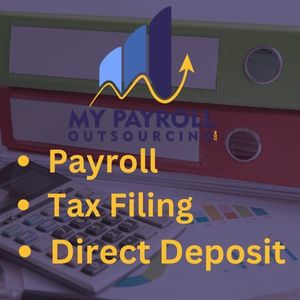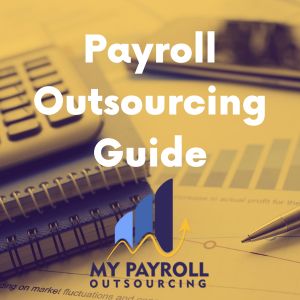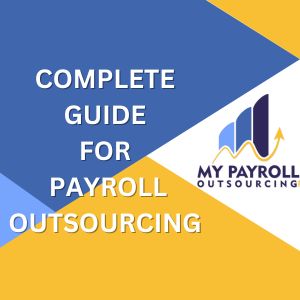
How Much Does Payroll Outsourcing Cost for a Small Business?
When considering the myriad tasks involved in managing a small business, payroll processing is undoubtedly one of the most time-consuming and intricate. Payroll outsourcing services can free up valuable time for small business owners to focus on growth and strategy, while also ensuring compliance and accuracy in employee compensation. But what is the cost of such convenience and assurance?
What Classifies as a Small Business?
Before delving into the specifics of payroll outsourcing costs, it’s important to define what classifies as a small business. Generally, a small business is regarded as a firm with fewer than 500 employees. This classification can include a wide range of business types and sizes, from a single proprietorship to a medium-sized corporation.
Average Costs of Payroll Outsourcing
The cost of outsourcing payroll varies widely based on the size of your business and the specific payroll services you need. Generally, you can expect to pay a basic fee that ranges from $20 to $100 per month. Additionally, some payroll providers charge an extra fee per employee, which can range from $2 to $12 per employee per month.
For a small business with around ten employees, the cost of payroll outsourcing could range from $40 to $200 per month, excluding any additional services or fees.

Breakdown of Services and Costs
Basic Payroll Services:
- Running payroll: Includes calculating pay for each pay period and distributing checks or direct deposits.
- Tax filing: Includes calculating, collecting, and filing federal, state, and local taxes.
Additional Services:
- Employee access: Allows employees to access and manage their own payroll information online.
- Reporting: Includes creating and distributing payroll reports.
- Integration: Includes integrating the payroll system with other software, such as accounting or human resource management systems.
Additional services can incur extra costs, ranging from $5 to $10 per employee per month.
Factors Influencing Cost of Payroll Outsourcing
Number of Employees:
As mentioned, the number of employees is a major factor affecting the cost of payroll outsourcing. More employees mean higher costs.
Frequency of Pay:
The frequency of pay (weekly, bi-weekly, semi-monthly, or monthly) can also impact the cost. More frequent payroll runs increase the cost.
Additional Services:
Opting for additional services like employee self-service portals, detailed reporting, or integration with other software will add to the cost.
While the costs can vary, small business owners can generally expect to pay a base fee plus an additional per-employee fee for payroll outsourcing. It’s important to carefully assess your business’s specific needs, budget, and the potential benefits of outsourcing payroll to determine if the investment is worthwhile for your small business.
By thoroughly researching providers, asking for quotes, and considering the exact services you require, you can find a payroll outsourcing solution that not only fits your budget but also enhances the efficiency and compliance of your payroll processes.

In-House Payroll vs. Outsourcing: A Cost Comparison
When examining the cost efficiency of in-house payroll versus payroll outsourcing, it’s crucial to analyze a variety of factors that go beyond mere dollars.
The Cost of In-House Payroll
For in-house payroll, a business needs to consider the salary of the employee handling the payroll. According to the U.S. Bureau of Labor Statistics, the median annual wage for payroll and timekeeping clerks was $46,180 as of May 2022 (Bureau of Labor Statistics). This cost does not account for additional expenses like training, software, and other resources needed for payroll processing, not to mention the space and equipment necessary for an additional employee.
Hidden Costs
In-house payroll carries hidden costs. The responsibility of error correction, legal compliance, and maintaining confidentiality falls on the business. Mistakes in payroll can result in significant legal and financial consequences, adding unexpected costs and stress.
The Advantages of Outsourcing
Outsourcing eliminates the need for a dedicated employee for payroll processing, which can be a significant saving for small businesses. It also reduces the risks associated with errors and legal compliance, as most payroll companies take responsibility for ensuring accuracy and adherence to regulations. This assurance can offset the cost of outsourcing, providing value beyond the actual service fees.
A Detailed Cost Analysis
Consider a detailed cost analysis that accounts for all potential expenses, both overt and hidden. Assess the specific needs and capacities of your business. For many small businesses, the cost of hiring a full-time payroll professional may outweigh the cost of outsourcing, especially when considering the added value of error prevention, legal compliance, and time savings.
In deciding between in-house and outsourced payroll, consider not only the immediate costs but also the long-term impact on your business’s efficiency, stability, and growth. Analyze the potential for cost savings, error reduction, and compliance assurance provided by outsourcing, and weigh these benefits against the expense and responsibility of managing payroll in-house.
By conducting a comprehensive cost analysis and considering the unique needs and capacities of your business, you can make an informed decision that supports the financial health and operational efficiency of your organization.

Financial Benefits of Investing in Payroll Outsourcing for Small Businesses
Investing in payroll outsourcing services comes with various financial benefits for small businesses, especially those with limited resources and workforce. Here’s a look into the monetary advantages that can be gained through this investment.
Efficient Time Management
One of the significant financial benefits of payroll outsourcing is the time it frees up. Small business owners and their teams can focus on core business activities instead of spending precious time on payroll management. This increased focus on core activities can lead to higher productivity and, ultimately, increased profits.
Efficient time management is a crucial benefit of payroll outsourcing, especially for small businesses that may not have the necessary resources to dedicate to this complex task. The time saved can be redirected towards focusing on strategies to expand the business, improving customer service, and other core business activities. The exact time and resources saved can vary, but the impact is often significant. Let’s delve deeper into understanding how payroll outsourcing aids in efficient time management and the potential time and resource savings for small businesses.
Time-Intensive Nature of Payroll
Handling payroll in-house is a time-consuming process. It involves keeping track of employee hours, calculating wages, distributing salaries, handling taxes and other deductions, and ensuring compliance with various laws and regulations. These tasks require meticulous attention to detail and a significant amount of time, especially when processed manually.
Time Savings with Payroll Outsourcing
By outsourcing payroll, small businesses can save substantial time each pay period. According to a study by Score, small business owners spend an average of 21% of their time on payroll-related activities. Outsourcing these activities frees up this substantial chunk of time, allowing owners and staff to concentrate on other important areas of the business.
The Multiplicative Effect of Time Savings
The time saved by outsourcing payroll has a multiplicative effect. Freed-up time allows businesses to concentrate on revenue-generating activities, customer interaction, and service improvement. This focus can lead to increased customer satisfaction, enhanced business reputation, and ultimately, higher revenue and profits.
Additional Resource Allocation
The time saved translates into saved resources. Businesses can allocate the human resources that would have been dedicated to payroll to other essential tasks. This reallocation can enhance efficiency and productivity in other areas of the business, providing a further boost to business growth and profitability.

Reduction in Overhead Costs
Outsourcing payroll allows businesses to reduce overhead costs. There’s no need to invest in additional software, hardware, or employees to manage payroll tasks. The reduction in overhead can translate to substantial cost savings, allowing businesses to allocate resources to other essential areas or investments.
Elimination of Specialized Staff Hiring
One of the most direct ways payroll outsourcing reduces overhead is by eliminating the need to hire and train specialized payroll staff. The annual salary for a payroll specialist can range significantly, and this does not account for additional costs related to benefits, training, and other expenses associated with employees.
Advanced Software Without Additional Costs
Outsourcing payroll also means businesses do not have to invest in purchasing, maintaining, and updating payroll software. Payroll providers have the latest technology to ensure that payroll is processed efficiently, accurately, and in compliance with all relevant laws and regulations. Businesses can benefit from this advanced technology without any additional investment or maintenance hassle.
Reduced Costs for Compliance Management
Compliance with federal, state, and local payroll tax laws is a complicated and constantly changing task. Mistakes can lead to hefty fines and penalties. Payroll outsourcing companies are experts in compliance management, ensuring that businesses adhere to all relevant laws and regulations without the need for businesses to spend time and resources staying up-to-date on these constantly changing rules.
Enhanced Security
Outsourcing payroll also enhances security by reducing the risks associated with internal payroll fraud, as well as ensuring the secure handling and storage of sensitive payroll data. The cost of managing and ensuring data security in-house can be considerable, and payroll providers have robust security measures in place to protect this sensitive data.
Efficiency Gains
Efficiency gains from outsourcing payroll can also translate into cost savings. With faster, more accurate payroll processing, businesses can avoid costly errors, delays, and rework, further reducing overhead expenses related to payroll management.
Reduced Paperwork
Lastly, outsourcing payroll helps in reducing the paperwork that businesses have to handle. Less paperwork means fewer resources spent on paper, printing, and storage, contributing to overhead cost reduction.

Avoidance of Penalties
Incorrect payroll processing can result in hefty fines and penalties for businesses. Professional payroll outsourcing firms are skilled in compliance and will ensure that all payroll-related tasks are executed accurately and on time. This accuracy helps businesses avoid costly fines and penalties associated with payroll errors and non-compliance.
Types of Penalties Avoided
- Late Filing and Payment Penalties: One of the most common penalties businesses face is for late tax filing and payment. Payroll services ensure timely and accurate tax payments, helping businesses avoid these penalties.
- Inaccuracy Penalties: Mistakes in calculating payroll taxes can also lead to penalties. Professional payroll services use advanced software and experienced personnel to ensure accurate calculation and payment of payroll taxes.
- Non-compliance Penalties: Non-compliance with various payroll tax regulations can result in hefty fines. Payroll services stay up-to-date with all relevant laws and regulations, ensuring businesses remain compliant and avoid related penalties.
- Penalties for Incorrect Forms: Submitting incorrect tax forms can result in penalties. Payroll services ensure the correct forms are used for all tax filings, helping businesses avoid these fines.
Ensuring Accuracy in Payroll Processing
Professional payroll outsourcing companies employ experienced payroll specialists and utilize the latest payroll software to ensure complete accuracy in payroll processing. This level of expertise and technology helps avoid errors that can lead to penalties, such as incorrect tax calculations, late tax payments, and non-compliance with tax regulations.
Automated Systems for Timely Filings
Automated systems used by payroll services help ensure timely filing of all tax forms, helping businesses avoid late filing penalties. These systems track all relevant deadlines and ensure that tax filings and payments are made well in advance, providing peace of mind to businesses and ensuring they stay in good standing with tax authorities.
Keeping Up with Laws and Regulations
Payroll services continuously monitor changes in federal, state, and local payroll tax laws, ensuring businesses remain compliant and avoid penalties related to non-compliance. By staying current with the latest regulations, payroll services help businesses navigate the complex landscape of payroll tax compliance effectively.

Access to Expertise
Outsourcing payroll grants businesses access to experts in the field. These experts are up-to-date with the latest payroll tax laws, regulations, and changes, ensuring that the payroll is handled correctly and efficiently. This expertise helps businesses avoid potential financial pitfalls related to payroll management.
Enhanced Security
Handling payroll in-house may expose businesses to the risk of payroll fraud, embezzlement, or other security breaches. Payroll outsourcing companies have advanced systems and security measures in place to protect business data and funds, providing an additional layer of financial security.
Predictable Costs
With payroll outsourcing, businesses can have a clear and predictable cost structure. They pay for the service without having to worry about additional hidden charges. This clarity helps in better financial planning and budget management, contributing to the overall financial health of the business.
The financial benefits of payroll outsourcing for small businesses are substantial. From time and cost savings to enhanced security and compliance assurance, outsourcing payroll services can be a strategic move for financial stability and growth. Making this investment allows businesses to focus on their core operations, driving productivity, profitability, and long-term success.

Exploring Hidden Costs and Additional Services
When considering the cost of payroll outsourcing services for small businesses, it is essential to explore not only the obvious and upfront costs but also any hidden fees and additional charges that may be applied for additional services. Understanding the full pricing structure can help businesses make a more informed decision.
1. Setup Fees:
Some payroll services may charge an initial setup fee. It’s important for businesses to inquire about this cost upfront and factor it into their budget.
2. Per-Payroll Fees:
In addition to monthly fees, some providers may charge fees each time you run payroll. Understanding these per-payroll fees is crucial to accurately estimating the cost of the service.
3. Year-End Tax Form Fees:
Some payroll services may charge additional fees for preparing and delivering year-end tax forms for your employees. These fees can add up, especially for businesses with numerous employees.
4. Additional Services:
Payroll services may offer additional services such as human resources support, benefits administration, and more. While these services can add value, it’s important to understand the cost and determine whether these services are necessary for your business.
5. Cancellation Fees:
Ensure to inquire about any cancellation fees or contractual obligations that may be associated with a payroll service, as this can impact the cost if you decide to change providers.
6. Customer Support:
Consider the availability and cost of customer support. Some payroll services may charge additional fees for phone support or other forms of assistance.

Assessing the Return on Investment (ROI)
In addition to understanding the costs associated with payroll outsourcing, it’s vital for businesses to assess the return on investment. By automating and outsourcing payroll functions, businesses can save a significant amount of time and resources, leading to increased productivity and profitability.
Evaluating the Total Cost: To make an informed decision, small business owners should evaluate the total cost of payroll outsourcing, including any hidden fees and additional charges for extra services, and weigh this against the benefits and cost savings offered by the service.
Calculating Time and Resource Savings: Consider the time and resources currently spent on payroll processing and compare this to the cost of outsourcing. Outsourcing payroll can free up valuable time for businesses to focus on core operations, potentially leading to greater revenue and growth.
Understanding the complete cost structure of payroll outsourcing services, assessing the return on investment, and considering the impact on efficiency and productivity is crucial for small businesses to make an informed decision. A comprehensive examination of all these factors will ensure that the investment in payroll outsourcing delivers tangible benefits and contributes to the growth and success of the business.

